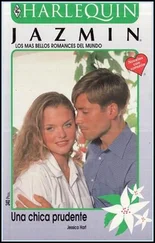“Such a role model she thinks she can just swan in and out whenever she feels like it,” Donna said, not quite under her breath.
“But wait,” Jen said. “If we were to do everything that you’re proposing, Baz, could we even be sitting in this room with each other right now? We would kill each other!” Bertha Mason rattled weakly at the door, then retreated.
No one replied. Baz Angler’s arm retracted in a dying fall. But she had begun, and she couldn’t stop.
“Also, I’m wondering — kind of a more big-picture issue — when we say all these things about how women are more this and less that, even if we’re praising women, isn’t that kind of counterproductive?” Jen asked. “To say that women are categorically one thing or the other? Part of the whole point of ‘empowerment’ or whatever we’re going to call it — I know we’re not on board with the word feminism as an institution — but the general idea is that women don’t have to conform to prescribed roles. I mean, being empathetic and nurturing and emotionally open are great things, but I don’t think a woman should beat herself up if those aren’t her super-strongest qualities. Not every woman has to be a mother, you know?”
“You’re misunderstanding the research,” Sunny broke in. “What we mean is that the maternal instinct is a metaphor for—”
“But even in saying ‘instinct’ we’re saying that motherliness is hard-wired into us,” Jen interrupted. “Right? I don’t think a tough, unmotherly woman is necessarily acting like a man or compensating for being a woman — maybe she’s just a tough woman. I’m rambling, but it’s just — feminism, sorry, I mean, empowerment isn’t about backing ourselves into a corner with compliments, and it’s not about anybody telling you who you’re supposed to be or how you’re supposed to act or policing your affect in order to win entry into the womanhood club. We’re all already in the club. It’s over. I mean, you’re not in the club, Baz—”
Bertha Mason tapped one ragged fingernail against the door. Baz watched Jen impassively, chin cupped in palm, one finger tapping his temple.
“But the club — the club that matters is who has power, and — and um, sorry, I lost my train of thought — and people who say whatever they want, whenever they want, probably have power already,” Jen said, her voice quavering and dipping steadily in volume. Her heart clapped at her throat, as if to dislodge the choking words. “Power and money and status. Saying exactly what’s on your mind isn’t empowering. It’s just symptomatic of power.”
Donna stared at the conference table with her head slightly cocked, as if she were receiving repeated blows to the skull and contemplating the best words with which to articulate the pain. Sunny was trying to make eye contact with Donna by drumming her fingernails on the table. Karina was wince-gazing over Jen’s shoulder. Daisy’s brow was knotted and she was nodding pensively. Leora and Baz scrolled their phones in tandem.
“Well,” Donna said.
Leora, stirred by Donna, looked up from her phone. “You know, I agree with the group — that word, feminism, it limits us. I prefer humanism. ”
“ Toe tally,” Sunny said, headbanging.
Karina smiled. “Shall we wrap up?”
Jen walked back to her desk, cheeks ablaze, heart kickboxing. She sat without seeing at her monitor until a surge of nausea overtook her. She looked around wildly, saw that she would not have time to reach the ladies’ room, lunged forward, and heaved into her wastepaper basket. Daisy appeared beside her with a half-full bottle of water and, over Jen’s feeble protestations, draped a puce beach towel of unknown provenance over the wastepaper basket, replaced it with the basket from her own desk, and turned toward points unknown to deposit the contents of the used basket.
“It’s going to be better this time,” Daisy said to Jen’s back a few moments later.
Jen twisted around to look at Daisy, hot cheek pressed against the open top of the water bottle. Daisy met her gaze. Jen knew that eye contact was hard for Daisy.
“I didn’t know for a while, this time,” Jen said. “Or I did but I didn’t. I wasn’t hoping. I wasn’t paying attention. I should have been paying attention.”
Daisy finally looked away as she arranged a stray strand of hair behind Jen’s ear.
“How did you — how long have you known?” Jen asked.
Daisy shrugged. “I sit two feet away from you all day, every day,” she said to Jen’s earlobe. “You are the closest person in the world to me.”
Re: Contact Jen!
My girlfriend and I were just talking about how cool it might be to have our portraits painted, but instead of from the front, they could be done from the back — head/hair/back of the neck. It would still call on your amazing technical abilities, but the viewer of the portrait could project his/her own ideas onto it.
Re: Contact Jen!
Would you ever consider a commission to paint people’s dreams? Not like people would describe their dreams to you. I mean, what if we hooked up sleeping people to a brain-wave scanner that decoded their dreams? Or maybe you could make a diptych of the dream and the scan?
Re: Contact Jen!
Hi, Jen, your payment should have come through via direct deposit by now. Please do let me know if there is any issue with the transfer. As always, it has been a pleasure for Mrs. Durbin to work with you. Warm wishes, Dakota
Jen tabbed over from email and opened her online bank account. Her lungs filled themselves with a muffled shrieking effort, and she clapped her hand over her mouth, her breath wooing back again through her fingers.
She folded her hands on her desk. She was comfortably seated in a still pocket of time, no turbulence, 70 degrees Fahrenheit, pH balance of seven. She had no idea when this pocket of time would expire.
Inside this space, as her amygdala dozed, as the volume and resolution of the world whirring around her faded out, Jen could not discern whether she was about to make a strong decision or was merely succumbing to impulse. What nudged her out of her seat and propelled her across the LIFt floor to Karina’s office was the same prod that pinballed her back and forth across that floor hundreds of times before: a helpless sense of obligation.
In this case, though, the sense of obligation was to the idea that Mrs. Flossie Durbin had initiated a transaction and that it was up to Jen to complete it. Mrs. Flossie Durbin had rented the pocket of time for her.
Jen entered Karina’s office and sat down without asking permission.
“So I just wanted to tell you, and this is such a hard thing to tell you, but that I’ve decided to leave the—”
“Bummer, we’ll miss you,” Karina broke in.
“—the foundation — oh! Yes, it’s a difficult decision, obviously, but I—”
“ Bummer, we’ll miss you,” Karina reiterated, raising her voice.
“Um,” Jen said. “Do you need any other information from me?”
“I’m good, I’m good,” Karina said. “Give us two weeks?”
“Right, sure.”
“Should I tell Leora?” Jen asked.
“I can tell her,” Karina said.
“Are you sure?” Jen asked
Karina blinked and beamed. “Is that all?”
“I think so,” Jen said, getting up to leave. She hesitated. “It’s just that — I just wanted to tell you that I’m leaving to try to do my art full-time. I did a portrait for Mrs. Flossie Durbin, the philanthropist—”
“Ah, yes, we tried to get her for our board of directors,” Karina said. “Could the woman even try to return a phone call?”
Читать дальше












